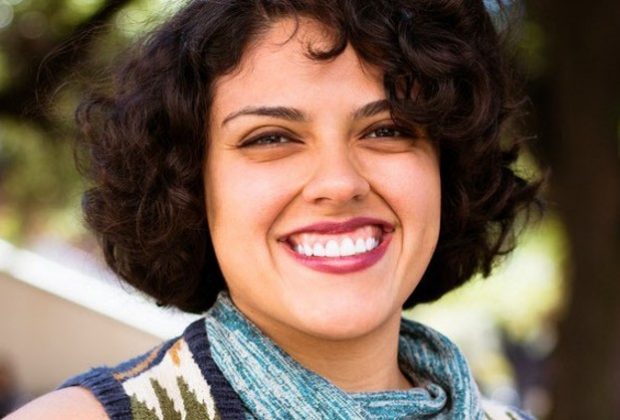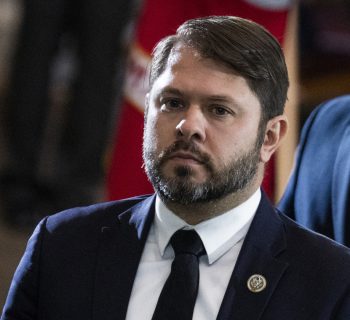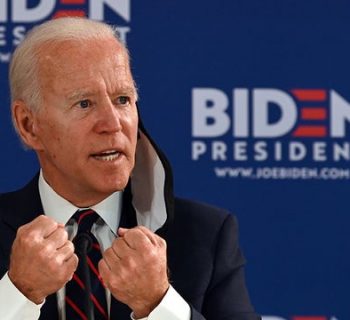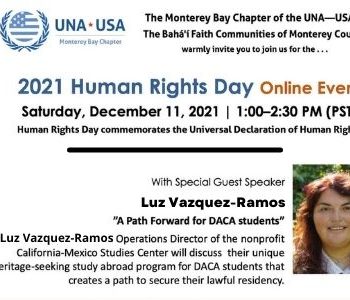By Brianna Stone - American-Statesman Staff ~ March 20, 2017
Despite an uncertain fate for thousands of Deferred Action for Childhood Arrivals beneficiaries and recommendations to refrain from overseas travel, some University of Texas students are not letting their undocumented status get in the way of studying abroad.
UT junior Yahaira Pamela, a DACA recipient who recently returned from a study abroad program in Mexico City, is planning to go on another trip this summer — even though her entry back into the United States is not guaranteed.
Pamela said her family comes from Tlalnepantla de Baz, Mexico, a town north of Mexico City, and entered the United States on a travel visa when she was 2 years old. She said her parents never talked about immigration or documentation and she didn’t begin to understand her situation until high school.
Under the DACA policy enacted by the Obama administration in 2012, certain undocumented youths who entered the country as minors can receive a renewable two-year period of deferred action from deportation.
More than 11 million undocumented immigrants live in the United States, and officials estimate that more than 16,000 of those people are students at Texas colleges. Few of these students choose to study abroad because of the risk of losing their immigration status and being stuck in a foreign country without any resources.
“Me leaving the country to Mexico was a risk, and I understand that this upcoming trip is also a risk,” Pamela said. “As an undocumented individual, I always have to think about a plan B, C, D.”
Along with a few other undocumented students, Pamela embarked on a nine-day trip to Mexico City in January for a program sponsored by the Jaime Lucero Mexican Studies Institute at the City University of New York and El Colegio de México. This was the first time she had been to Mexico in more than 18 years and her first time ever leaving the United States. The educational trip included a reunion with relatives who lived near Mexico City.
“I was able to meet family members who knew me as a little girl but who I didn’t remember,” Pamela said. “I was able to re-experience Mexico … or just experience Mexico.”
Trip organizers arranged for the students to return before the inauguration of Donald Trump, who had taken a hard-line stance against illegal immigration during the presidential campaign.
“CUNY didn’t want us to be in Mexico after Jan. 20 because we didn’t know what would happen with DACA,” Pamela said. “I applied for advance parole to get permission to leave the country but still ran the risk of immigration not letting me back in when I returned.”
Applying and getting accepted for advance parole requires a nonrefundable $575 filing fee and can take up to 90 days. Advance Paroles are allowed for educational, humanitarian or employment purposes.
“For my last trip, I had to contact my congressman, Lloyd Doggett, to get my parole expedited,” Pamela said. “I applied for advance parole in December, and my trip was set for January.”
She said immigration authorities had told undocumented individuals that educational trips would not be expedited, but with the help of Doggett, an Austin Democrat, Pamela got all of her paperwork in order before the trip.
When Pamela returned, she said, her documents and advanced parole were checked by immigration authorities, and she was asked a few general questions, but she didn’t have any trouble re-entering the country. The only hang-up: She missed a connecting flight while waiting to be screened.
Pamela plans to return to Mexico in May for a six-week study abroad program through UT. She said that for her January trip, she did not consult with a lawyer before leaving, but this time she will out of caution. According to UT, Pamela is not the only undocumented student traveling overseas this year.
More than 3,000 UT students study abroad every year in one of the 80 countries in which the university has built programs, according to its international office. Eleven undocumented students have studied abroad since 2014, and this year, four undocumented students, including Pamela, plan to study abroad during the summer and one during the fall semester.
UT’s international office recommends that DACA students who want to study abroad seek legal advice.
“If legislation changes while abroad, one’s legal DACA status could be rescinded and, thus, re-entry into the U.S. could be jeopardized,” the international office says on its page of information for undocumented students.
The office said it encourages all undocumented students to develop alternative pathways to get similar educational experiences without leaving the country.
It’s uncertain whether Trump will continue the DACA policy, but he has not taken any action yet.
The students might be safe taking trips, depending on when their two-year DACA status expires. Pamela said she recently renewed her DACA status and that it will expire in October 2018.
If Trump decides to immediately cancel DACA, the consequences would be more dire.
For undocumented students who are not DACA beneficiaries, studying abroad would be much more dangerous, because they do not have temporary legal protection as DACA students have.
Elissa Steglich, a professor in UT’s immigration clinic at the Law School, said the general advice from the immigration legal community is to avoid travel unless it’s necessary.
“It’s unclear what could happen while someone is overseas, and it would be more difficult to defend them and make legal challenges while they are outside the U.S. rather than inside the country,” Steglich said.
In the past, the immigration clinic has had some DACA students study abroad, she said, but things are different now since Trump took office.
If undocumented students studying abroad are denied entry back into the United States, immigration lawyers say they will be sent back to the country in which they studied abroad, rather than to their country of origin. This policy, called “immigration reciprocity,” sends foreign nationals back to the country to which they were last admitted if they are refused entry to the United States.
In preparing for her return to Mexico in May, Pamela said she has been making connections with colleagues from the university in Mexico City and with local organizations in case she can’t return to the United States.
“If I have trouble coming back, there’s either going to be a pause on my education or a pause on my life,” she said.







